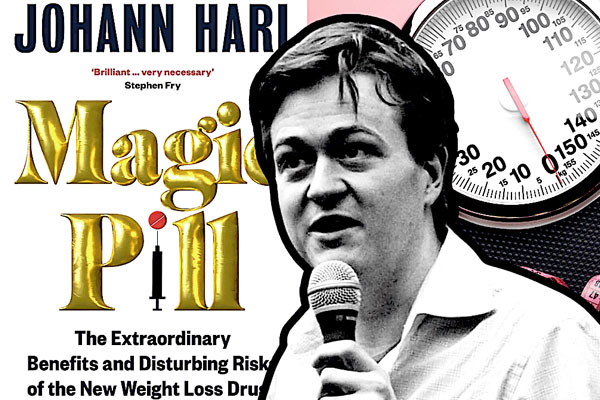TO EAT LESS? –
June 7, 2024 – Hari reappeared with a best seller, Chasing the Scream, on the social causes of addiction, and a viral TED Talk—which has now been viewed 21 million times—on the same topic. He’s since written three more pop-science books, all of which are variations on this theme. In 2018, he published Lost Connections, another best seller, about depression, anxiety, and, to some extent, the nature of addiction.
In the fall of 2005, Johann Hari, then a young columnist for The Independent who was struggling with his weight, described a trip he said he’d taken to a wellness spa in the foothills of the Carinthian Alps. After spending just four days there on a cleansing diet that consisted almost entirely of drinking tea—Hari could not bear to stay a moment longer—he’d lost seven pounds. “The cravings for lard had leeched out of my system,” he marveled in his write-up, noting that he hadn’t yet regained the weight.
Hari tells this Alpine-detox story once again in Magic Pill, his fourth and latest book, released last month—but the anecdote now appears to hold a different lesson. Instead of maintaining his new diet, he seems to relapse: “When I got home, I felt like a failure,” he now says of the very same experience. “Where, I wondered, was my willpower?”
The new book’s title is a slanted reference to Ozempic (which doesn’t come in pill form), and to the new class of anti-obesity medications that is already reshaping health care for tens of millions of Americans. Many of Magic Pill’s 250 pages describe these drugs’ amazing benefits and potential harms; most of the rest are devoted to a workmanlike review of certain social causes of obesity, and how they might one day be reversed.



